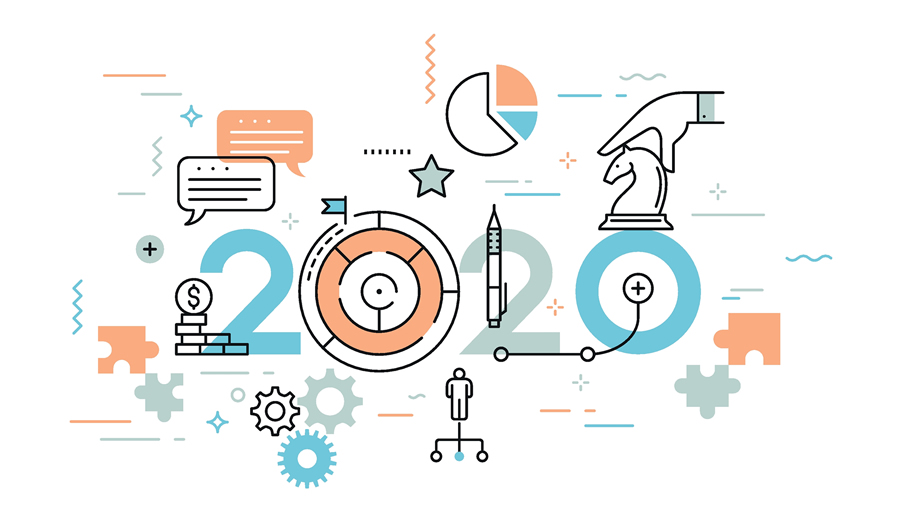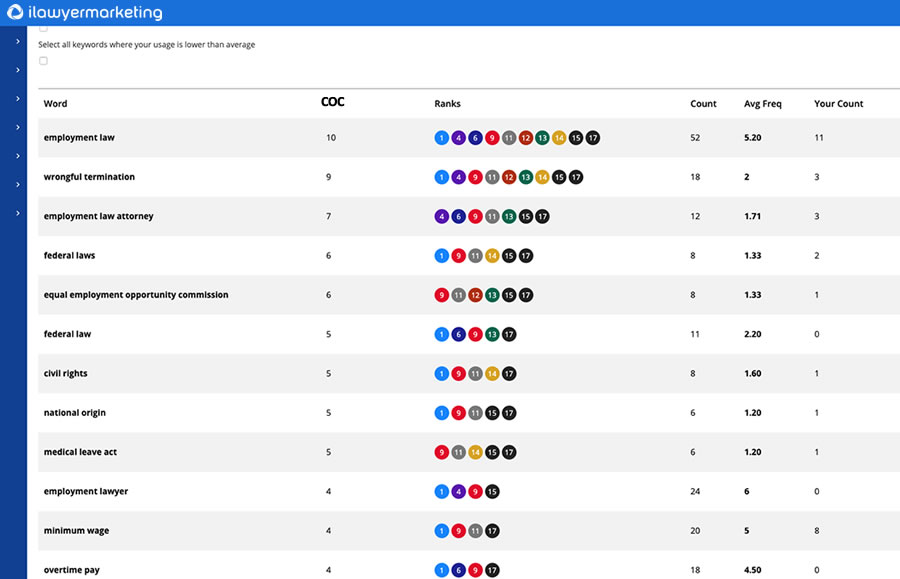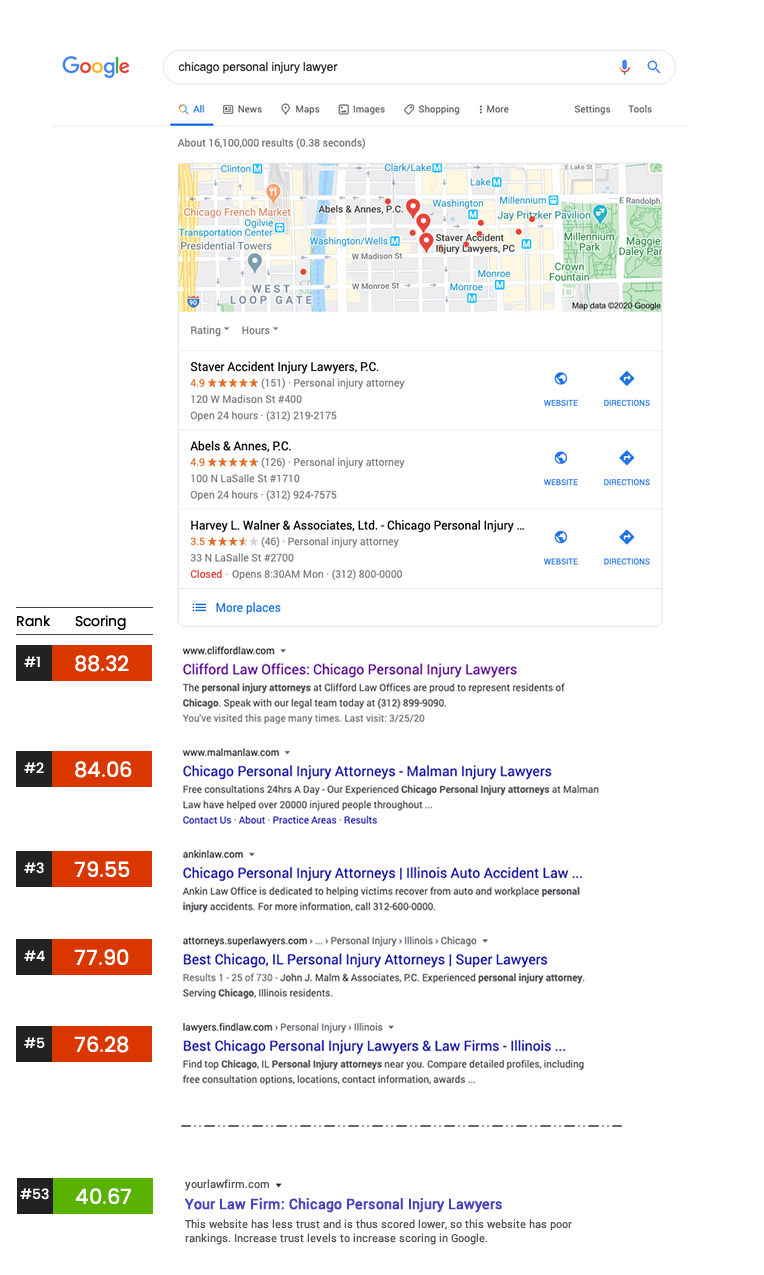
It’s the question every law firm business owner who is looking for law firm SEO services wants to know. “How long will it take till I start ranking on the 1st page of Google?” It’s a fair question but it’s not one that anybody can easily answer. It depends on hundreds, possibly thousands, of different factors. Let’s discuss some of the most important ones.
Factors that impact the time it takes for a webpage to rank
1. Your Site’s Trust Level with Google
A lot of SEO people and legal industry sales reps like to throw out the words “Domain Authority” or “Domain Rating” when it comes to ranking on Google. But did you know that these are metrics developed by SEO software companies and are not used by the search engines? Google does not use Moz Domain Authority or AHREFS Domain Rating at all in their organic search ranking algorithm. While Google does consider the “authoritativeness” of websites, they of course use their own metrics and this information is not available to any 3rd party tool or provider. To make it clear, the level of trust your site has with Google impacts your ability to rank.
You may have heard of EEAT when people talk about SEO. EEAT stands for “Experience, Expertise, Authoritativeness, and Trustworthiness.” EEAT is part of Google’s Quality Rater Guidelines. These guidelines are used by human quality raters to evaluate the quality of search results. While EEAT itself is not a direct ranking factor in the sense of an algorithmic component that Google’s search engine uses to rank web pages, the principles behind EEAT do impact rankings. The concepts of experience, expertise, authoritativeness, and trustworthiness are aimed at ensuring that high-quality, reliable, and relevant content ranks higher in search results. These factors are considered important in determining the value and reliability of online content, especially in YMYL (Your Money or Your Life) areas like legal.
Getting back to the topic of “trust”, the more that Google trusts your site, the greater ability your site has to rank. In 2009, Google filed a patent titled “Search result ranking based on trust”. The abstract of that patent says: “A search engine system provides search results that are ranked according to a measure of the trust associated with entities that have provided labels for the documents in the search results. A search engine receives a query and selects documents relevant to the query. The trust ranks are used to determine trust factors for the respective documents. The trust factors are used to adjust information retrieval scores of the documents. The search results are then ranked based on the adjusted information retrieval scores“. While filing a patent does not guarantee it is being used, Google has talked about trust being a factor for many years now. So, what are some of the things that can impact trust for your site?
Content Quality
Google’s Search Quality Rater Guidelines is a guide to help their quality raters help assess the quality of the web pages they review. That guide provides insight into what Google considers to be quality content. While this guide does not tell you how the algorithm works, it does provide us with insight on how Google wants its algorithm to work. It’s clear that content quality is extremely important to earning Google’s trust and is a fundamental factor in ranking high on Google. Creating content that Google considers as high quality is the very reason we developed our own proprietary Content Enhancement Software.

To Google, high-quality content doesn’t mean that your target keywords are repeated over and over or that you are using complex words. Those things, in fact, can hurt your rankings! The current algorithm wants to see comprehensive content ranking high because that usually provides a much better user experience. For every single search phrase, Google expects to see certain keywords. If I’m writing an article on the topic of “employment law” for example, Google is not looking to see the word “employment law attorney” in my content repeated 20 times. They want to see other semantically related words appearing as well. For example, our software tells us we need to use words like medical leave act, minimum wage, wrongful termination or equal employment opportunity commission (along with hundreds of other keywords, entities, and questions). Our software provides us with all the keywords Google expects to see in order to rank on the 1st page. While this alone doesn’t guarantee 1st page rankings, it’s a fundamental part of the process.
Quality of inbound links
The most commonly talked about ranking factor in the SEO world is inbound links, or links on other websites that point to your website. If you have had a company do SEO for you in the past, and they created low-quality links to your website, they may have lowered your site’s trust level and impaired your ability to rank. If your site has used over-aggressive anchor text from too many web pages, that can appear to the Google algorithm as an attempt to manipulate their search results. If you don’t know, anchor text is the words used in a link on a webpage. For example, we can link to our personal injury SEO page using keywords like “best personal injury SEO“. If we were to do this in excess, it could create a red flag for Google and cause a loss of trust and lower rankings. While there are many, many other factors that impact the level of trust Google has for your website, link related issues are the most common problem we have to overcome when we take on any SEO project for a law firm.
Brand mentions
Another element that impacts Google’s trust level is your law firm’s “brand mentions” on the web. Brand mentions are when your business is mentioned online on website pages, blog posts, social media, video or other web content. For example, if an article on USA Today mentions your law firm name in their article, that’s a powerful brand mention from a site that Google has extremely high levels of trust for. A law firm that has been mentioned on many media outlets for many years is likely to have a much greater ability to rank than a law firm that has never been mentioned in the media. Of course, the sentiment in the brand mentions is also a factor. If people have negative things to say about your business on the web or are leaving negative reviews on Yelp and other sources, that can hurt your rankings.
Branded searches
Law firms that are heavy TV advertisers have an advantage when it comes to ranking on Google. This is because there are many more “branded” searches occurring. Branded searches occur when web users type in a specific brand name as part of their query. For example, if Google sees that there are 1,000 branded searches every month for a law firm’s name due to all the TV ads they run, that shows that people are actively searching for that business and this can help with rankings. Compare that to another law firm where there are only a small handful of branded searches, Google’s algorithm is going to think the firm with a much higher volume of branded searches should rank higher.
Building trust with Google takes time. Earning back trust when a domain has been damaged by poor SEO tactics takes even longer. Fortunately, we have had plenty of experience dealing with exactly this kind of situation. In fact, we’ve had significant success both establishing trust and rebuilding it for law firm websites so they can appear on the 1st page of Google SERPs for a wide range of search terms.
2. Your current rankings
Naturally, where you currently rank for your target search terms is a factor in how long it will take you to rank. If you are starting out with a brand-new website, it’s going to take longer to rank than if you have an existing site and you are, say, on the 4th page of Google for your primary target keyword phrase. The exception here being if your current site is being penalized by Google.
3. Competition on Google

One of the biggest factors in how long it will take to rank is the level of competition that exists for your target keywords and phrases. The stronger the competition is on the 1st page of Google, the longer it takes to pass those websites up. Google assigns a score to every page that is returned for any given query. You are going to have to “score” higher in order to pass those sites up in the organic search rankings. Take this search for “Chicago personal injury lawyer”. We see that Google has over 11,000,000 web pages in its index that are returned for this query. Ranking on the 1st page of Google for this search is no small task, especially in the uber competitive niche of personal injury SEO! That’s a lot of websites you need to score higher than if you want that prized 1st page visibility.
Generally speaking, the larger the metro area is, the more competitive it’s going to be. So a market like Los Angeles, California is going to take a lot longer to rank in than Temecula, California.
4. Crawl, Indexation and Serving
It’s important to understand that when it comes to optimizing for Google’s algorithm, virtually nothing is processed instantly by Google. Many parts of the SEO process like getting a ranking boost from links take weeks or months to have an impact on Google’s algorithmic scoring. Even adding content to your site takes time to have an impact. For example, if you update your site by adding content to an existing page or adding a new page, it doesn’t mean that you have the potential to rank for that new content instantly. Google has to first discover, crawl and serve those pages before that can happen.
Crawling: Googlebot (Google’s web crawler) needs to eventually crawl the specific page that has been changed or created. Googlebot does not visit most sites on a daily basis and they do not crawl every single page of a website. For some site’s on the web this can take weeks. Even then, just because Google has crawled your site, this doesn’t mean your changes will now show up in Google’s search results.
Indexation: Next, Google needs to try and process that page to understand what it is about. Google analyzes the text on your page, the images, videos, etc. and then stores this information on their servers. That process is called indexing. However, your page being indexed does not mean it will show up in search just yet.
Serving: The last step is serving, or ranking that content. After crawling and indexation, your page is now scored and ranked when a user types in a query on Google. The results we see on the SERPs (Search Engine Results Pages) is Google trying to match the intent of the web searcher’s query to the page in their index with the highest “score”.
5. Google algorithm updates
Google’s algorithms are constantly evolving. In fact, Google makes over 3,000 updates to its algorithm on an annual basis. Some are small updates while others are large scale and have larger implications that cause drastic swings in rankings. The SEO tactics that are effective today may literally be completely ineffective tomorrow. Google does not make announcements that they are going to update their algorithm. They do not give details about what parts of it have changed. However, we track nearly 20,000 law-related keywords on a daily basis, looking for fluctuations and swings. As a result, we are able to identify days where large algorithm updates have occurred and quickly begin our research into what they changed. While it’s a challenge to chase a constantly moving target, the state of flux is what fascinates me about SEO and it’s why, even after nearly two decades studying Google’s algorithm, I still love what I do. This is the #1 reason why it’s impossible to know for sure how long it will take to rank.
Google protecting against ranking manipulation
One of the most challenging aspects of SEO is the “waiting”. When you are doing SEO work, you want to see if the changes you make positively (or negatively) impact rankings. However, it’s pretty rare in SEO to get instant answers. It takes a while to see the fruits of our labor. Take for example “link building”, one of the most important parts of the SEO process. On average, a single link built today will not have an impact on rankings for 60-90 days. This is intentional on Google’s part as they have learned through thousands of algorithmic iterations that this helps to prevent gaming of their algorithm. In years past, large volumes of links pointed at a website overnight would send rankings shooting upwards. Google’s algorithm was much easier to manipulate and as a result, the quality of Google search results was poor and filled with spammy web pages that were horrible for the user experience. Google knows that poor quality search results means they lose users, which means less people clicking on paid ads and lower overall profit. To safeguard against this, Google waits for a much longer period than ever before for links that they discover to have any significant impact on rankings.
Additionally, many links that used to help web pages rank better no longer help at all. Or worse, they can actually negatively impact your web rankings. We have seen low-quality links and links from sites that are part of link networks have this effect time and time again. The truth is, many SEO companies still create low quality links that do absolutely nothing to help improve rankings. This is usually the case with low budget SEO providers who do not have the budgets necessary to do SEO the “right way” (although we see this in other law firm marketing providers as well). Never choose a law firm marketing vendor on price alone. The money you “save” in the end will cost you much more with the lost opportunity to generate cases from the Internet.
Plan accordingly
If you are waiting for SEO results to start working, you need to be considering using paid search marketing for your law firm as you wait for organic results to kick in. In fact, these days Paid Search advertising should absolutely be a part of your Internet marketing strategy. In addition to helping to generate leads, it can also provide incredibly valuable insight for your SEO campaign.

